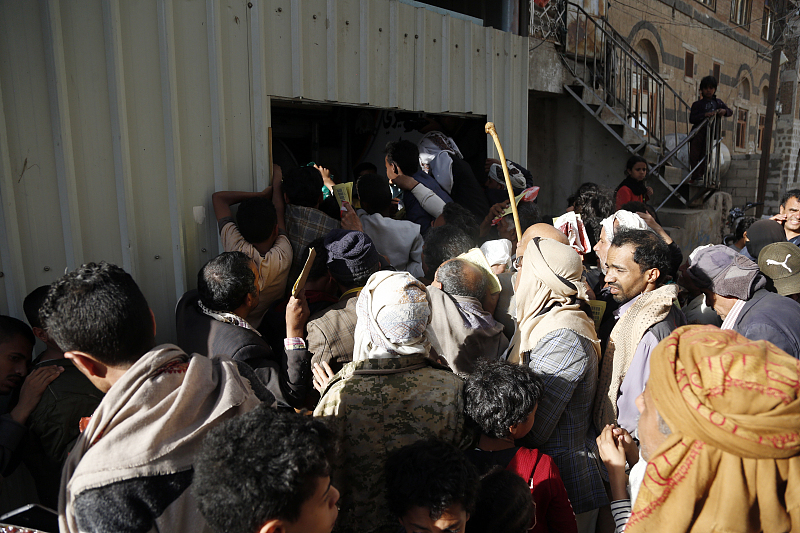Yemeni government officials have gathered in Riyadh, the capital of Saudi Arabia, to discuss a comprehensive three-year peace plan to end the country’s civil war, a Yemeni diplomat said on Friday.
The move signals that regional rifts are easing. A permanent ceasefire in Yemen would mark a milestone in stabilizing the Middle East.
“Saudi Defense Minister Khalid bin Salman held a meeting on Thursday with Rashad Al-Alimi, chairman of Yemen’s Presidential Leadership Council (PLC), and other high-ranking Yemeni government officials in Riyadh, during which he presented the kingdom’s plan for peace in Yemen,” the Yemeni diplomat told Xinhua on condition of anonymity.
Truce and reconstruction plan
The proposed plan is based on a series of back-channel negotiations between Saudi Arabia and the Houthi rebels in Muscat, the capital of Oman, that have been conducted for the past few months. It’s focused on a truce between warring factions, a full reopening of Yemen’s ports and airports, payment of wages for public servants, a rebuilding process and a political transition.
The plan has three main stages that will be implemented over a period of three years, the diplomat said, adding the Yemeni officials have already shown their initial support for the plan.
The first phase of the plan is “a six-month truce between warring factions in Yemen, during which hostilities will cease and efforts will be made to rebuild trust and lay the groundwork for peace.”
The second phase would entail a dialogue to address key issues and grievances among the various Yemeni factions and reopen the closed roads, airspace and seaports.
The third stage would be a two-year transitional period during which a new and inclusive government would be established, paving the way for long-term stability and peace in the country, according to the official.
If a truce agreement is reached, the parties could announce it before Islam’s Eid holiday starting April 20, according to Reuters.

People affected by years of war and blockade flood to a charitable kitchen to receive free meals in the Mseek area, Sanaa city, Yemen, March 23, 2022. /CFP
Humanitarian crisis
Meanwhile, another Yemeni government official told Xinhua that Muhammad Al Jaber, the Saudi ambassador to Yemen, along with an Omani delegation, is planning to meet leaders of the Houthi rebels in the Yemeni capital of Sanaa to discuss the “the final arrangements” of the truce.
Oman and the United Nations have mediated previous rounds of negotiations between the Yemeni government, Saudi Arabia, and the Houthi rebel group, but previous attempts have failed due to a lack of trust between the warring parties and continued violence on the ground.
Yemeni observers hope that the proposed peace plan will be a viable solution to the ongoing conflict and alleviate the country’s humanitarian crisis. The conflict has killed tens of thousands and left 80 percent of Yemen’s population dependent on humanitarian aid.
In an additional sign of progress in Yemen’s peace efforts, the Saudi-led coalition lifted eight-year-old restrictions on imports headed for Yemen’s southern ports, allowing commercial ships to dock directly there, including Aden, the Saudi-backed government said.
This follows the easing of restrictions in February on commercial goods entering the Houthi-held western port of Hodeidah, the country’s main seaport.
Yemen has been embroiled in a devastating civil war since 2014, with the Houthis fighting against the internationally-recognized Yemeni government. The Saudi Arabia-led coalition intervened in the conflict in support of the Yemeni government in 2015 and imposed strict restrictions on flow of goods into import-reliant Yemen.






















